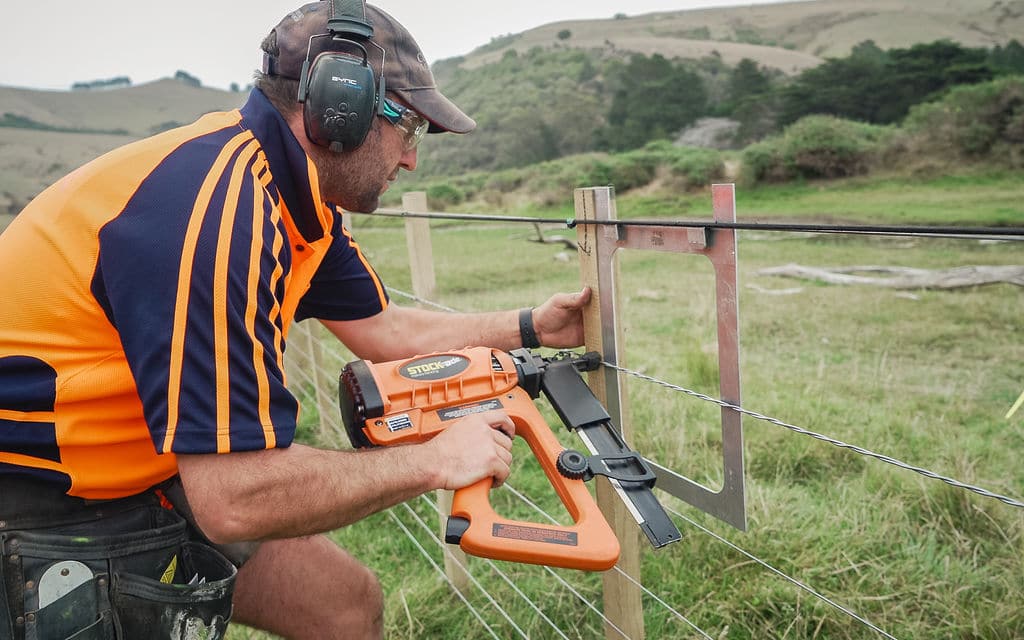Stockade is one of ITW’s brands under the Construction Products segment, alongside Paslode, Ramset, and SPIT.
Stockade is relied upon around the world by professional contractors, producers, farmers, and line workers. Hardworking people who do long stints in remote places and tough conditions.
The drive to create a trusted stapling system that delivers results time after time and stands up to the elements, extreme heat, cold, salt, wind, is what makes the Stockade brand strong, reliable, and best in class.
That drive began back in 1998. Paslode New Zealand, a unit of the ITW Construction Products Group, supplied power-actuated nailing solutions to builders. Engineers from that unit devised a power-nailing technology for rural fence applications and investigated the potential of a new professional-standard fence stapler tool.
By 2007 Paslode New Zealand’s technical team worked in conjunction with professional fencing contractors to develop a robust reliable tool that would be trusted in the field. They drew on the expert knowledge of engineers, farmers, fence contractors, to create a new era of fence stapling tools.
In 2009, Stockade released the ST315, the world’s first power stapler designed for the rural livestock fencing sector. In response to a growing North American demand for a power to drive 2” (50mm) staples, Stockade developed and released another world-first, the ST400. This become the premier nine-gauge (4mm) pneumatic fence stapler, and with its industry-standard staples, the tool was quickly welcomed into the hands of fencing contractors and producers across the USA, Canada, the United Kingdom, and Australia.
Launching the cordless gas-powered ST315i batten fence stapler in 2015, and most recently the ST400i post fence stapler in 2016, changed the game. These cordless gas-powered tools gave professional contractors in the rural and utility sectors and producers working across agriculture and horticulture a new sense of freedom.
Built to the same high standards of Stockade’s globally successful pneumatic staplers, the ST315i and ST400i fence staplers combine rural-focused rugged design with cordless gas-powered technology.
Without hoses or compressors, the ST315i and ST400i allowed for quick and easy movement across difficult terrain, across waterways, up and down trellis systems. They became a safe alternative to fixing staples above head height, an attractive prospect for line crew in the utility sector. These gas-powered tools easily matched their earlier pneumatic tools’ power and reliability with even greater versatility and speed of movement. Moreover, the rugged design, reliable safety features, and ability to deliver a strong consistent hold as well and depth of staple control made these tools ideal in the hands of any crew member, from newcomers to seasoned veterans. The ease-of-use and safe, consistent stapling introduced a whole new level of confidence and reliability of a job well done.
And without fail, the gains in efficiency, productivity, lowered rates of injuries, and increased staff morale from the power staplers converted the most conventional hammer handler. Business owners, producers, crews with limited staff found the tools four, five, or more times faster than hand-hammering, reaping the rewards of profitability, better use of time, and physical comfort.
In 2021 Stockade brought out its Series II ST400i, which has a slick ergonomic design, reengineered belt hook, and metal filter for improved tool performance.

